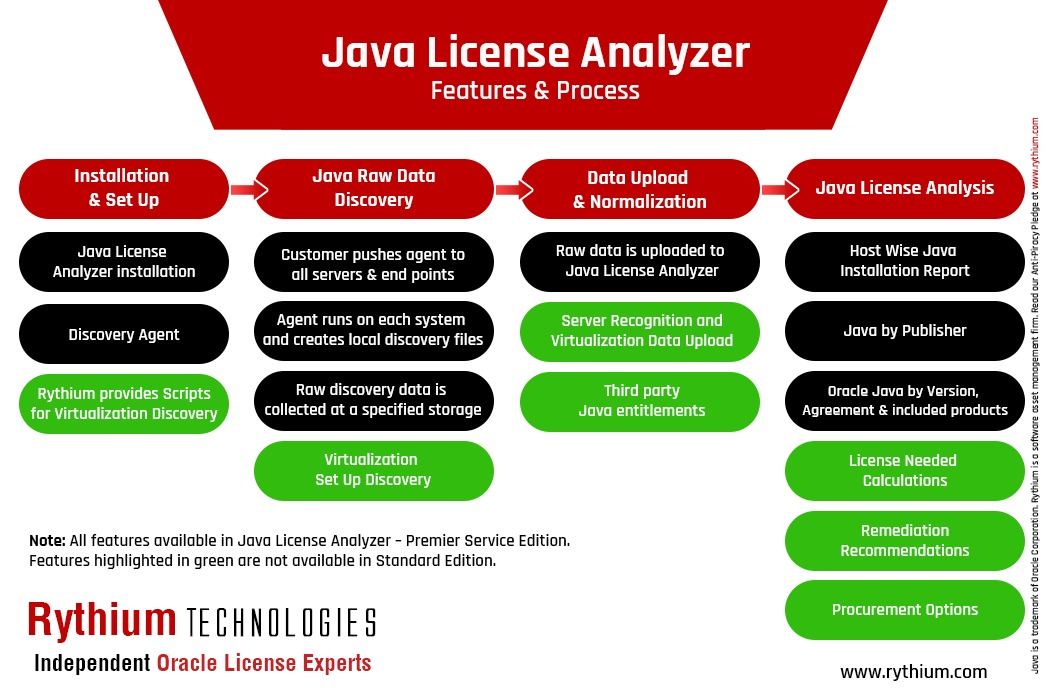How much should you pay for Java is becoming the uppermost question in the minds of most CIOs today. Oracle says that the Java license change has made it simpler for customers.
But, In reality, Oracle Java licensing changes have made impacted customers quite adversely, with
- the cost of Java becoming enormous,
- the price not corresponding to its utility value and
- Java deployments becoming a potentially uncontrollable license compliance challenge.
Analyst’s View of the Future:
Interestingly, a major analyst like Gartner has made the following predications & projections:
- Gartner has predicted that by 2026, more than 80% of Java applications will be deployed on third-party Java runtimes.
- Gartner has also projected that one in five organizations using Java applications will be audited by Oracle by 2026, leading to “unbudgeted noncompliance fees.”
- Gartner also predicted that by 2026, more than 30% of organizations using Java applications will not comply with their Oracle contracts.
Customer Insights Feedback
Our discussions with customers over the past nine months has thrown up a few more points:
- Every customer is unhappy with Oracle. There is not even one customer who believes that Oracle is doing the right thing. And this is not about morality.
- Customers are willing to pay for Oracle Java. But believe they should pay for the value obtained from the software they use.
- Customers want clarity on definitions of licensing metrics.
- Every customer is looking for an alternative,
- With applications being certified on OpenJDK or
- Applications being certified on non-Oracle Java runtimes.
- Customers have started moving out of Oracle Java. Almost every client of ours is migrating some, if not all, of their applications. While they may not need to pay for licenses today, all of them are worried about a possible further change in license policy.
Customer’s Tactical Actions
We have seen some interesting tactical action being taken by our customers:
- RFPs are being written (and sometimes being re-drawn) with stipulations that the application should be certified on OpenJDK and non-Oracle Java variants.
- Oracle Java being treated as software that are prevented from being downloaded (with safety levels specified that are normally meant for harmful software / malware)
- Approval levels going up to the CIO & Legal Counsel when somebody asks for Oracle Java to be used. (And this does not specify the Java version)
- Not yet a deluge, but some customers are looking at moving out of Java to .NET (and other platforms).
- Usage of third-party Java runtimes are increasing across the board.
With all the above happenings in the world of Java license changes, it is indeed important to check what Oracle is doing and how much should you pay for Java
What is Oracle doing?
- Oracle is hurrying up trying to close deals across the board with all kinds of customers – BFSI, IT & ITES, Manufacturing, Hospitals, Retail are some that we are seeing.
- Initially we found Oracle sales reps being a bit hesitant to push the new licensing metric. They tried to explain the rationale for the metric and be apologetic about asking for more money from customers.
- In the past three months, this attitude has changed to: You have no choice but to pay for Java and the employee metric is the only recourse. The tone too has changed, there is a the normal swagger while asking for the large subscription fees.
Rythium’s View on Java license changes imbroglio
- Oracle has the right to monetize its products. Java SE is owned by Oracle, and they have the right to get money when people use it.
- The questions that come up are:
- What is the amount of money that Oracle should charge?
- Should the license fee correspond to the value that customers get from using the software?
Our view on these two questions is:
Customers should pay for the value that they get from the asset they are using.
The same holds true for Java.
What should customers do?
While Oracle Java remains a popular choice for some time to come (even this is debatable but not completely in our scope of discussion), organizations should carefully evaluate their Java usage patterns and explore alternative solutions like OpenJDK & third-party Java, use Oracle’s free Java and take other actions to optimize their Java investments and maintain control over their IT infrastructure.
Rythium’s Recommendations to Customers
In the immediate:
- Customers should decide whether they need to pay for Oracle Java
- If they have deployments that need to be paid for, then they need to decide what is the amount they should pay for Oracle Java.
- Enable controls to prevent downloading and installing Oracle Java without due approvals.
In the medium term:
- Re-work strategy and decide whether to stick with Oracle Java or get onto some other platform (non-Oracle Java, OpenJDK or not-Java)
How we help customers on Java:
- Visibility of Java deployments
- In-depth license normalization
- Remediation Recommendations
- Procurement & Price Negotiations
Java License Analyzer
We have also developed a tool called the Java License Analyzer that marries most of the above components of our service. You may see the features of java license analyzer here



